Introducing: Poems as Teachers (ft. Wisława Szymborska) | Episode 1
Host Pádraig Ó Tuama gives an overview of this Poetry Unbound mini season that’s devoted to poems with wisdom to offer about conflict and humanity. He also brings us Wisława Szymborska’s “A Word on Statistics,” translated by Joanna Trzeciak, which covers statistics of the most human kind — like the number of people in a group of 100 who think they know better, who can admire without envy, or who could do terrible things. Listen, and ask yourself: Which categories do I belong to? Which do I believe?
This is the introductory episode of “Poems as Teachers,” a special seven-part miniseries on conflict and the human condition.
We’re pleased to offer Wisława Szymborska’s poem, and invite you to read Pádraig’s weekly Poetry Unbound Substack, read the Poetry Unbound book, or listen back to all our episodes.
Guests
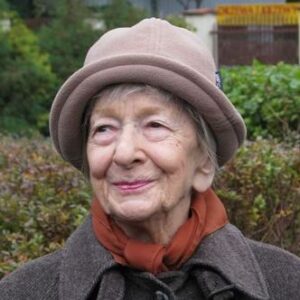
Wisława Szymborska was a Polish poet and recipient of the 1996 Nobel Prize in Literature, and she lived from 1923 to 2012. Her poetry is collected in numerous volumes including View with a Grain of Sand, Poems New and Collected, Miracle Fair, and Map. Image by Mariusz Kubik.

Joanna Trzeciak is professor of Russian and Polish Translation and Translation Studies at Kent State University. She has translated two poetry collections: Miracle Fair: Selected Poems of Wisława Szymborska, which was the winner of the Heldt Prize for translation, and Sobbing Superpower: Selected Poems of Tadeusz Różewicz, which was shortlisted for the Griffin Poetry Prize and winner of the Found in Translation Award and the AATSEEL Award for Best Scholarly Translation.
Transcript
Pádraig Ó Tuama: My name is Pádraig Ó Tuama, and for a long time I’ve been interested in how a poem can be a teacher. At the end of last year, we asked folks who read the Poetry Unbound Substack what questions they had about poetry, and one of the areas that came up was about poems that have something to say about conflict. So here we have it, in response to your questions, a little Poetry Unbound miniseries, Poems as Teachers, we’re calling it. This time we’re looking at conflict and the human condition.
[music: “Praise the Rain” by Gautam Srikishan]
I used to work in conflict resolution, and even in those sessions, I’d often bring in a poem for all of us to look at, to try to understand the dynamics of the human condition, and to allow the poem to speak to us about this most powerful of experiences, which is division and conflict.
Obviously, there’s fruitful conflict where you and I disagree with each other, but our disagreement, even if it’s difficult, can help build something. And there’s destructive conflict too: war. And so we have this short series for you, this episode, and six more. It is a short series. It does not propose a solution to war. We do have a poem from the Gazan poet Mosab Abu Toha, and one also from Yehuda Amichai, a famous Israeli poet of the 20th century. I am filled with opinion about what’s going on in Gaza and about the moral and political necessity of ceasefire, but this is about having a poem as a teacher, not me as a teacher. So over the course of this small series, we’ll be looking at particular poems that have something to teach us.
Joy Harjo reminds us about how conflict ground rules means giving attention to the rules, but also to the ground upon which the conflict is happening, as well as asking what it means to tune into your own vocation, your own voice. Constantine Cavafy asks questions about enemies and deception and leadership. Mosab Abu Toha — I mentioned him already — he has a declaration and lament about Palestinian land, hospitality, and time. Jericho Brown looks at how sometimes unexpected people can come together in common cause. Yehuda Amichai challenges folks to have their rightness dug up by doubts and loves. And Kai Cheng Thom considers what it means to live with wounds.
This is Poetry Unbound, and we are guided by poetry, and we’re here to bring poems to you. And the poem that I’m going to read for you now is by the brilliant Polish poet Wisława Szymborska. She won the Nobel Prize for literature in 1996. The poem is called “A Word on Statistics,” by Wisława Szymborska, translated from Polish by Joanna Trzeciak.
“Out of every hundred people
“those who always know better:
fifty-two.
“Unsure of every step:
nearly all the rest.
“Ready to help,
as long as it doesn’t take long:
forty-nine.
“Always good,
because they cannot be otherwise:
four—well, maybe five.
“Able to admire without envy:
eighteen.
“Led to error
by youth (which passes):
sixty, plus or minus.
“Those not to be messed with:
forty and four.
“Living in constant fear
of someone or something:
seventy-seven.
“Capable of happiness:
twenty-some-odd at most.
“Harmless alone,
turning savage in crowds:
more than half, for sure.
“Cruel
when forced by circumstances:
it’s better not to know
not even approximately.
“Wise in hindsight:
not many more
than wise in foresight.
“Getting nothing out of life but things:
thirty
(although I would like to be wrong).
“Doubled over in pain,
without a flashlight in the dark:
eighty-three,
sooner or later.
“Those who are just:
quite a few at thirty-five.
“But if it takes effort to understand:
three.
“Worthy of empathy:
ninety-nine.
“Mortal:
one hundred out of one hundred—
a figure that has never varied yet.”
[music: “First Grief, First Air” by Gautam Srikishan]
There are so many things to say about this brilliant poem by Wisława Szymborska, translated fantastically in English by Joanna Trzeciak. But the thing that I think is particularly pertinent to this series where we’re looking at Poems as Teachers, especially about the human condition and conflict, is that this poem asks questions about your anthropology. What do you think of the human species? Wisława Szymborska goes through and says, look, out of every hundred you’ve got this amount of people who are like this, and this amount of people who are like this, and depending as to their age, this amount of people, but eventually something will change. I’m not entirely sure that she believes all of these things. It’s titled kind of ironically, “A Word on Statistics.” I think she’s making up statistics to kind of start a conversation, which isn’t to say that these are accurate or forensically researched. Of course they’re not. It’s a poem. But they certainly are saying something about some of the dynamics that she sees, some of the ways that she sees the human person live — people who know better, people who are unsure, people who always try to act well, people who can admire without envy, or people who could do terrible things when they’re in crowds or when they’re afraid, the kind of pain that we all know, all these statistics that she puts out to say, these are experiences that you’ll find amongst a population of people.
And one of the questions that conflict arises in us over and over again is, are we capable of change? Am I capable of change? If I find myself stuck in a rut and acting in a particular way, am I capable of thinking, hang on, what if I’m in the wrong? Am I able to employ some kind of question, some kind of digging up, some kind of query that opens me up to the possibility of something previously unexpected? And how is it that I want to use surprise and creativity, to have an engagement in a conflict that opens us up to each other in a way that something good happens?
One of the things that a poem like Wisława Szymborska’s that uses made up statistics does, it kind of tricks you. Rather than going, oh, hang on. Where do these statistics come from? You can quickly find yourself going, am I on the good side or the bad side here? And so you’re reading yourself in conversation with the poem. And therefore, what we’re trying to do is to listen to the responses that we have as we read this poem and are read by the poem.
And that’s part of the hope that we have for this miniseries on Poems as Teachers, that you can not only listen to the poem, but listen to yourself as you’re listening to the poem and as the poem is talking to you, experience the resistance, the critique, the thoughts you have back, or the story that’s opened in you as part of it. None of these poems will be comprehensive to give an opinion about how to think about the world. That’s not what we’re trying to put across in these episodes. What we are trying to say is that the poem can ask you something and you might hear yourself saying something back.
So, friends, join us. This is just a small offering from Poetry Unbound with Poems as Teachers, as we particularly look at conflict and the human condition. We’ll keep a close eye on our socials, especially on Substack, and we’ll follow up with you there in the weekly entries and in the conversations that unfold.
[music: “Praise the Rain” by Gautam Srikishan]
Chris Heagle: “A Word on Statistics” comes from Wisława Szymborska’s book Miracle Fair. Thank you to W. W. Norton & Company who gave us permission to use Wisława’s poem. Read it on our website at onbeing.org.
[music: “Praise the Rain” by Gautam Srikishan]
Additional support for this mini-season of Poetry Unbound comes from:
Civic (Re)Solve — building communities of civic empowerment.
Quiet — listen and finish listening.
And The Hearthland Foundation — committed to justice, equity and connection, one creative act at a time.
Poetry Unbound is: Gautam Srikishan, Eddie Gonzalez, Lucas Johnson, Kayla Edwards, Tiffany Champion, Cameron Musar, and me, Chris Heagle.
Our music is composed and provided by Gautam Srikishan and Blue Dot Sessions.
This podcast is produced by On Being Studios, which is located on Dakota land. Open your world to poetry with us by subscribing to our Substack newsletter. You may also enjoy Pádraig’s book, Poetry Unbound: Fifty Poems to Open Your World. For links and to find out more visit poetryunbound.org.
Books & Music
Recommended Reading
The On Being Project is an affiliate partner of Bookshop.org and Amazon.com. Any earnings we receive through these affiliate partnerships go into directly supporting The On Being Project.






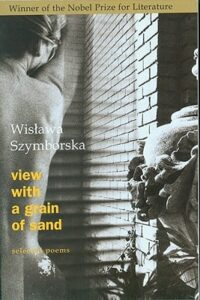
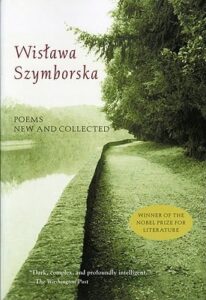
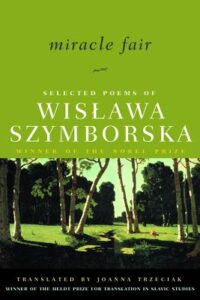
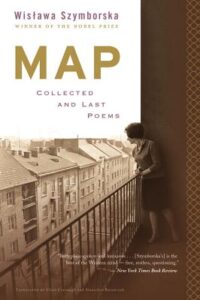


Reflections